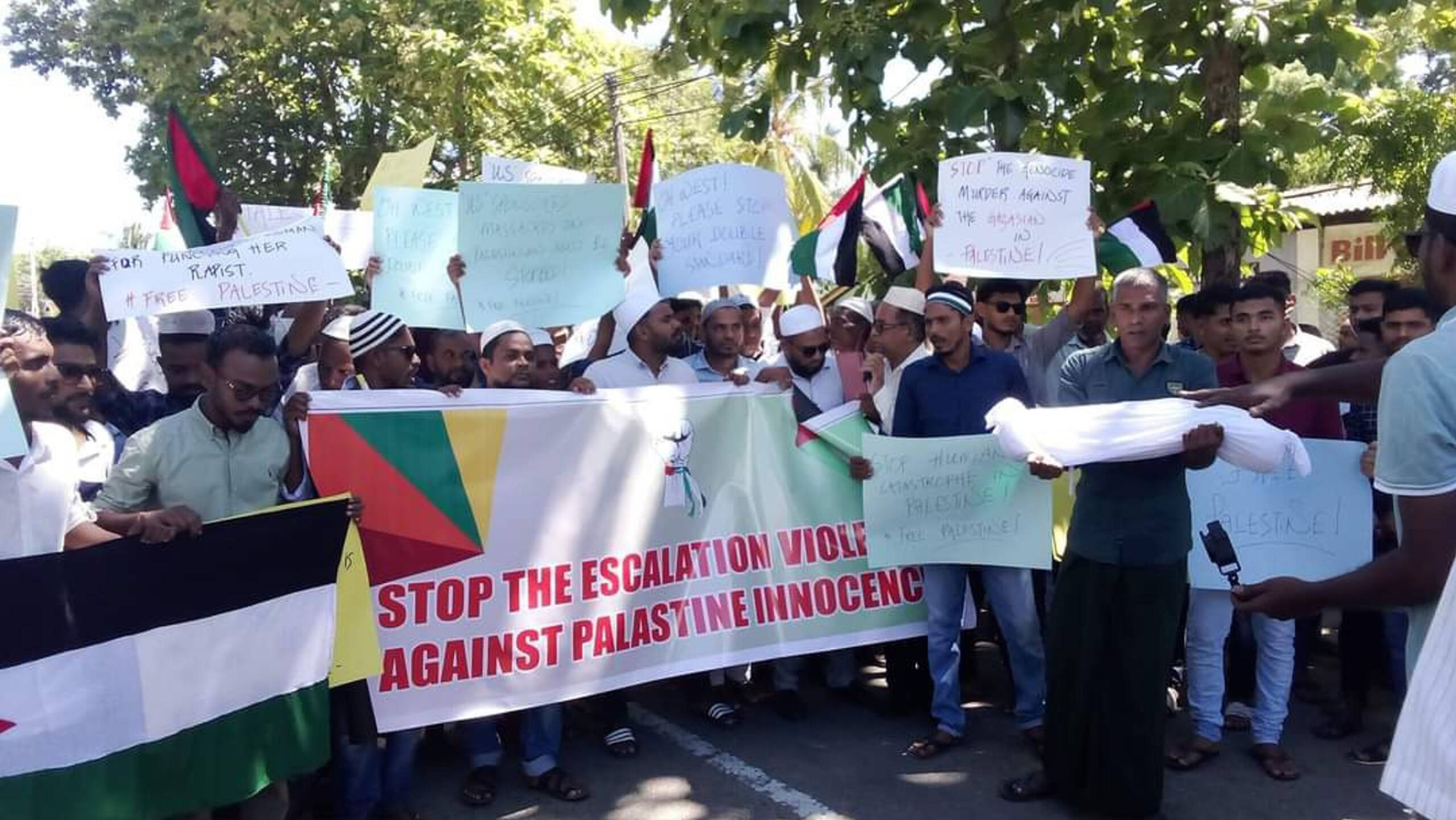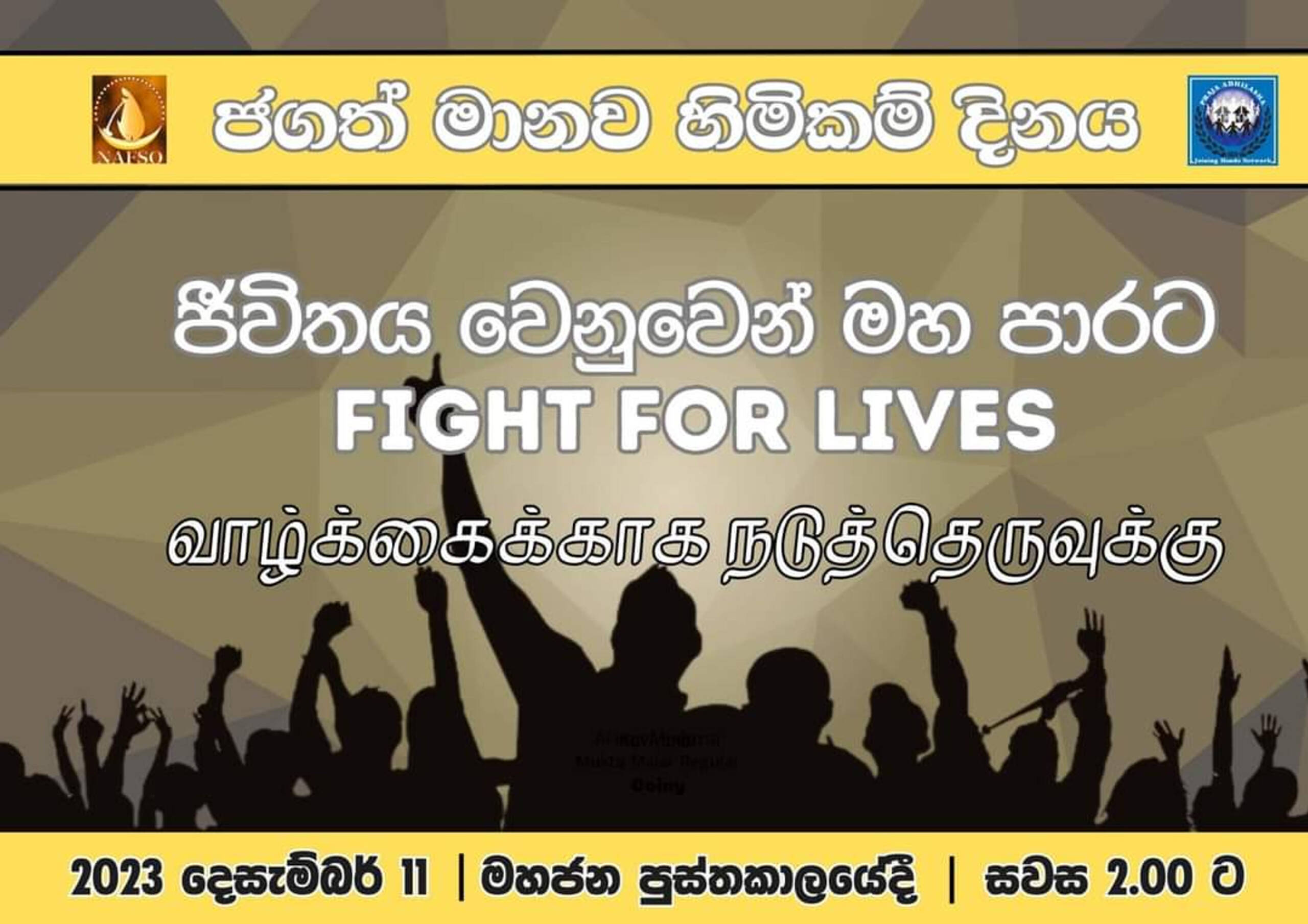By Herman Kumara| Chairperson, Praja Abilasha Land Rights Network
Hunger, starvation, poverty, water and electricity scarcity, oppression, occupation, and violation of fundamental human rights are common to both Sri Lankan and Palestinian peoples. It has been 75 years since the adoption of the Universal Declaration of Human Rights (UDHR), yet, both countries continue to share similar stories of human rights violations.
However, the core ambition of the UDHR has been to foster equality, fundamental freedoms, and justice across societies, but reality starkly contrasts with this noble ambition. In 2023 and so far in 2024, we have seen repeated violence, detention and murder committed against Palestinians throughout occupied Palestine, as in the north and east of Sri Lanka. Destruction of forests is a common phenomenon, as is land grabbing, in both our lands. The world is seeing widespread human rights violations, plunging nations and communities into unprecedented turmoil and suffering.
On December 10, 2023, Human Rights Day, Sri Lankan civil society organizations, including the Praja Abilasha Land Rights Network (Joining Hands Sri Lanka), and the National Fisheries Movement (NAFSO), came together to raise our voices against militarization, environmental destruction, land grabbing and water grabbing in Sri Lanka. We also came together to express our deep solidarity with the Palestinian people in their struggle for liberation from occupation, oppression, and the violent destruction of livelihoods and lives, including the lives of children in Gaza.
And yet, the international community, responsible for standing up for international law and fair and equitable application of these laws, has said and done little to condemn or stop the violence and crimes against humanity taking place in Palestine. In fact, in recent years, powerful entities, including the United States and the European Union, have continued to support Israel despite its violations of international law and the principles of humanity.
In 2009, the Sri Lankan Tamil peoples were facing a serious humanitarian crisis, living under the constant threat and reality of military violence. According to the UN, 40,000 Tamil citizens were killed during the last two weeks of the brutal war between the Sri Lankan Military and the Liberation Tigers of Tamil Elam (LTTE), a militant separatist group.
The genocide was reported, and the liberation struggle of Tamils was brutally crushed down militarily. The whole world remained silent, and the UN vacated the war zone while Sri Lankans pleaded for them to stay. The irony is that history repeats itself.
Currently, in Gaza, where brutal killings are happening, the UN and the rest of the world watch and do little to stop the killing while they continue to justify the Israeli occupation and brutality.
However, peace is possible, if the international community holds Israel to account and compels an end to the occupation and violations of Palestinian rights. Peace will only come when the Palestinian people can breathe, live safely, and raise their children in their historic lands, in the ways all people wish to live – in freedom with dignity.
Similarly, though there is no physical war in Sri Lanka today, the ethnic minority communities continue to suffer from discrimination, and these communities require an assurance of a right to life, a right to freedom of expression, dignity and freedom from oppression, and a right to water and land.

Dr.Zuhair M H Dar Zaid- Palestinian Ambassador to Sri Lanka speaks at the Human Rights Day gathering in Colombo on December 10, 2023. Photo courtesy of Praja Abhilasha.
In the current day context of Sri Lanka, the economic crisis exacerbates existing human rights concerns. The erosion of civil liberties and economic hardships faced by its people underscore the urgent need for a rights-based approach to address the prevailing economic and political crises.
The Gaza genocide, with its catastrophic humanitarian consequences, must serve as a clarion call for a new, people-centric world order, one that affirms human rights and fair and just global governance.
As we gathered on Human Rights Day in Colombo, we reflected on the challenges faced by humanity, and we reaffirmed our commitment to the values enshrined within the human rights framework. With the impressive input of the Palestinian Ambassador to Sri Lanka, who was in attendance, we the members of Praja Abhilasha and NAFSO, together with other civil society organizations, determined to unite as oppressed people, in both Palestine and Sri Lanka, to strive for a world where the rights of every individual are protected, where conflicts yield to peace, inequalities diminish, and justice prevails as an unwavering force for good.
The work of the Presbyterian Hunger Program is possible thanks to your gifts to One Great Hour of Sharing.

